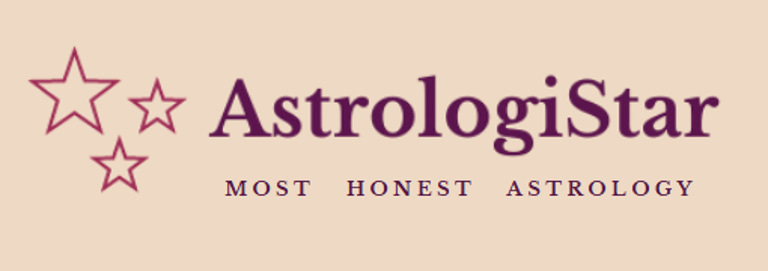When NOT to Use Incense or Dhoop: Astrological Warning for Rahu in Key Houses
In Indian tradition, incense (agarbatti) and dhoop play a vital role in daily rituals like prayer, meditation, and space cleansing. But did you know that under certain astrological conditions, especially when Rahu is placed in key positions in a birth chart, using dhoop may actually invite harm instead of benefits? Let’s explore why burning dhoop can be harmful when Rahu is placed in the 1st, 4th, 7th, or 10th houses of the main family member’s horoscope.
8/1/20251 min read
🌑 What Does Rahu Represent?
Rahu is a shadow planet in Vedic astrology. It symbolizes illusion, fear, confusion, instability, and mysterious or hidden energies. When Rahu occupies any of the Kendra Sthanas (angular houses – 1st, 4th, 7th, 10th), its influence becomes very strong and can significantly affect an individual's life and energy field.
Astrological Significance of Dhoop
Dhoop is considered a representative of the Agni (fire) element.
It is traditionally used for:
Purifying the environment
Balancing subtle energies
Creating a sacred or positive space
However, because it is fiery and intense, using it inappropriately or under wrong planetary conditions—especially when influenced by Rahu—can activate negative energies instead of calming them.
When Should You Avoid Burning Dhoop?
If the main member of the household (e.g., father, husband, or head of the family) has Rahu placed in any of the following houses in their birth chart, caution is advised:
1️⃣ 1st House (Lagna / Ascendant)
Rahu here can affect the person’s mental stability, focus, and health.
👉 Burning dhoop may trigger headaches, anxiety, restlessness, or overthinking.
4️⃣ 4th House (Sukh Sthana)
This house relates to home, comfort, mother, and emotional peace.
👉 Dhoop in such a condition may unknowingly disturb domestic harmony or increase emotional tension.
7️⃣ 7th House (Marriage & Partnerships)
This governs one’s spouse, partnerships, and public life.
👉 Wrong use of dhoop here may cause relationship strain, misunderstandings, or imbalance in married life.
🔟 10th House (Karma Sthana)
This house is linked to career, status, and karma.
👉 The fiery energy of dhoop may, when combined with Rahu's illusionary nature, cause confusion in career or lead to poor decisions.
Hindi
धूप और अगरबत्ती भारतीय संस्कृति का एक अहम हिस्सा हैं। पूजा-पाठ, ध्यान या घर की शुद्धि के लिए इनका उपयोग आम है। लेकिन क्या आप जानते हैं कि कुछ खास ज्योतिषीय स्थितियों में धूप का प्रयोग करने से लाभ की जगह हानि भी हो सकती है?
आज हम बात करेंगे कि यदि राहु कुंडली के पहले, चौथे, सातवें या दसवें भाव में हो, तो किन कारणों से घर में धूप जलाना हानिकारक माना गया है।
🌑 राहु क्या दर्शाता है?
राहु एक छाया ग्रह है, जो भ्रम, भय, मानसिक अस्थिरता, और रहस्यमय ऊर्जा से जुड़ा होता है। जब यह कुंडली के मुख्य केंद्रों (Kendra Sthaan – 1st, 4th, 7th, 10th houses) में स्थित होता है, तो व्यक्ति और परिवार पर इसका गहरा प्रभाव पड़ता है।
🔥 धूप का ज्योतिषीय महत्व
धूप को अग्नि तत्त्व का प्रतिनिधि माना जाता है।
यह वातावरण की शुद्धि और ऊर्जाओं के संतुलन के लिए उपयोगी है।
लेकिन यह भी एक तेजस्वी (fiery) तत्व है – जो यदि राहु जैसे ग्रहों के प्रभाव में गलत समय या स्थिति में इस्तेमाल किया जाए, तो नकारात्मक ऊर्जा को और अधिक सक्रिय कर सकता है।
किन स्थितियों में धूप का प्रयोग न करें?
यदि घर के मुख्य सदस्य (जैसे पिता, पति, गृहस्वामी) की कुंडली में राहु इन स्थानों में हो:
1️⃣ पहला भाव (Lagna / Ascendant)
राहु यहाँ व्यक्ति की मानसिक स्थिरता, आत्म-चिंतन और स्वास्थ्य को प्रभावित करता है।
👉 धूप के प्रयोग से सिरदर्द, बेचैनी या तनाव बढ़ सकता है।
4️⃣ चौथा भाव (Sukh Sthaan)
यह घर, माँ, सुख-सुविधा और वाहन से जुड़ा है।
👉 धूप यहाँ अनजाने घर के क्लेश या मानसिक अशांति को बढ़ा सकता है।
7️⃣ सातवां भाव (Vivah & Public Life)
यह जीवनसाथी और भागीदारी से जुड़ा है।
👉 धूप का गलत समय पर प्रयोग वैवाहिक तनाव या रिलेशनशिप में उलझन ला सकता है।
🔟 दसवां भाव (Karma Sthan)
यह करियर, समाजिक प्रतिष्ठा और कर्म से जुड़ा होता है।
👉 धूप की तेज ऊर्जा राहु के साथ जुड़कर करियर में भ्रम या गलत निर्णय ला सकती है।


